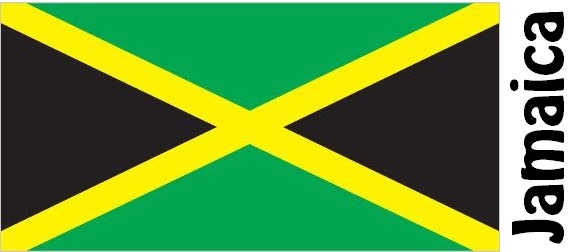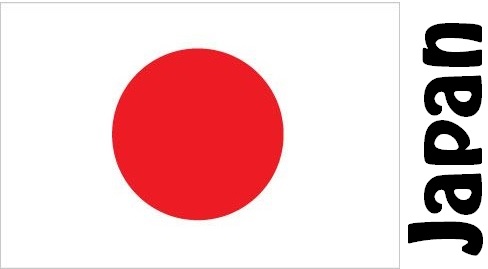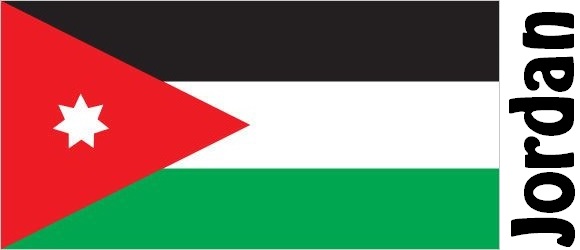Flags of Countries that Start with J
How many countries beginning with J? There are a total of 3 countries starting with letter J among the 193 countries in the world:
- Jamaica
- Japan
- Jordan
Jamaica

Jamaica is located in the Caribbean. The landscape consists of limestone plateaus, mountain ranges, valleys and lowland areas, beaches and coral reefs on the coasts. IN there is rain forest, in S there is savanna. Jamaica is the third largest island in the Caribbean.
The climate is tropical, but cooler, rainier in the mountains. Destructive hurricanes and floods occur.
The country’s most important natural resources are bauxite, limestone and agricultural land. Agriculture employs about 1/5 of the working population. Among other things, sugar cane, bananas, fruit, coffee and spices for export. Tourism is of great importance to the island’s economy.
Jamaica gained full independence in 1962, but still has constitutional monarchy within The Commonwealth.
Country Facts – State Capital – Population Graph – Airports – Public Holidays – Embassies of Jamaica – Embassies in Jamaica – Import Regulations – Major Trade Partners – Major Imports – Major Exports
Japan

Japan is an empire in eastern Asia and comprises four major islands, Hokkaido, Honshu, Shikoku and Kyushu as well as ca. 3,500 smaller islands in the Pacific. The islands are mountainous and the landscape consists mostly of NS-walking mountain ranges with steep, rugged sides and volcanoes.
IN there is a temperate climate with hot summers and mild winters, against NV however cold, snowy winters. IS is the climate subtropical with summer monsoon. In the middle run, devastating earthquakes, typhoons and tsunamis occur.
In addition to fish and timber, Japan has very few natural resources. The country is therefore a major importer of energy and raw materials – especially coal, iron, natural gas and oil.
Since a major earthquake in 2011, most of the country’s nuclear power plants have been shut down.
Country Facts – State Capital – Population Graph – Airports – Public Holidays – Embassies of Japan – Embassies in Japan – Import Regulations – Major Trade Partners – Major Imports – Major Exports
Jordan

Jordan is a Kingdom of SV Asia. The country is located on the Arabian Peninsula with borders to Iraq, Israel, the West Bank, Saudi Arabia and Syria as well as a very short coastal stretch of the Gulf of Aqaba in the Red Sea. In the island, Jordan’s landscape consists of a plateau of steppes and desert. Along the western border, the Jordan River runs from Lake Genesis to the Dead Sea.
There is subtropical climate with the greatest rainfall in NV. The climate is more desert-like in the island.
Jordan has high phosphate deposits but otherwise few natural resources. The country has limited water resources and irrigation is essential for agriculture.
During the period 1949-1967, the West Bank was part of Jordan. Today, the area is under Israeli and Palestinian rule. Jordan suffers from widespread poverty and high unemployment.

Country Facts – State Capital – Population Graph – Airports – Public Holidays – Embassies of Jordan – Embassies in Jordan – Import Regulations – Major Trade Partners – Major Imports – Major Exports













































